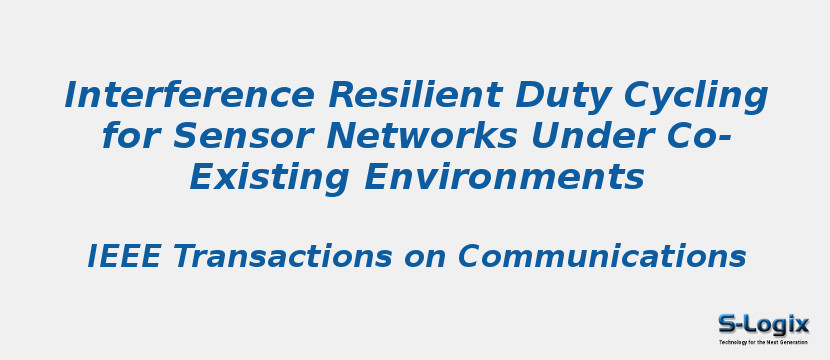Research Area: Wireless Sensor Networks
To save energy, wireless sensor networks often run in a low-duty-cycle mode, where the radios of sensor nodes are scheduled between ON and OFF states. For nodes to communicate with each other, low power listening (LPL) and low power probing (LPP) are two types of rendezvous mechanisms. Nodes with LPL or LPP rely on signal strength or probe packets to detect potential transmissions, and then keep the radio-ON for communications. Unfortunately, in co-existing environments, signal strength and probe packets are susceptible to interference, resulting in undesirable radio ON time when the signal strength of interference is above a threshold or a probe packet is interfered. To address the issue, we propose ZiSense, a low duty cycling mechanism resilient to interference. Instead of checking the signal strength or decoding the probe packets, ZiSense detects the ZigBee signals and wakes up nodes accordingly. On sensor nodes with limited information and resource, we carefully study and extract short-term features purely from the time-domain RSSI sequence, and design a rule-based approach to efficiently identify the existence of ZigBee. We theoretically analyze the benefit of ZiSense in different environments and implement a prototype in TinyOS with TelosB motes. We examine ZiSense performance under controlled interference and office environments. The evaluation results show that, compared with the state-of-the-art rendezvous mechanisms, ZiSense significantly reduces the energy consumption.
Keywords:
Author(s) Name: Xiaolong Zheng,Zhichao Cao,Jiliang Wang and Yuan He; Yunhao Liu
Journal name: IEEE Transactions on Communications
Conferrence name:
Publisher name: IEEE
DOI: 10.1109/TCOMM.2017.2692758
Volume Information: Volume: 65, Issue: 7, July 2017,Page(s): 2971 - 2984
Paper Link: https://ieeexplore.ieee.org/document/7895123
